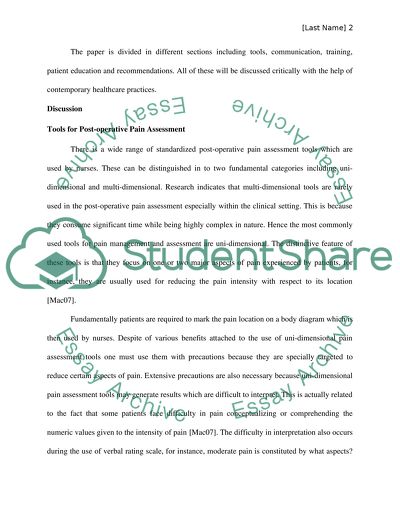Cite this document
(“Post operative pain assessment Essay Example | Topics and Well Written Essays - 2000 words”, n.d.)
Retrieved from https://studentshare.org/nursing/1652304-post-operative-pain-assessment
Retrieved from https://studentshare.org/nursing/1652304-post-operative-pain-assessment
(Post Operative Pain Assessment Essay Example | Topics and Well Written Essays - 2000 Words)
https://studentshare.org/nursing/1652304-post-operative-pain-assessment.
https://studentshare.org/nursing/1652304-post-operative-pain-assessment.
“Post Operative Pain Assessment Essay Example | Topics and Well Written Essays - 2000 Words”, n.d. https://studentshare.org/nursing/1652304-post-operative-pain-assessment.


